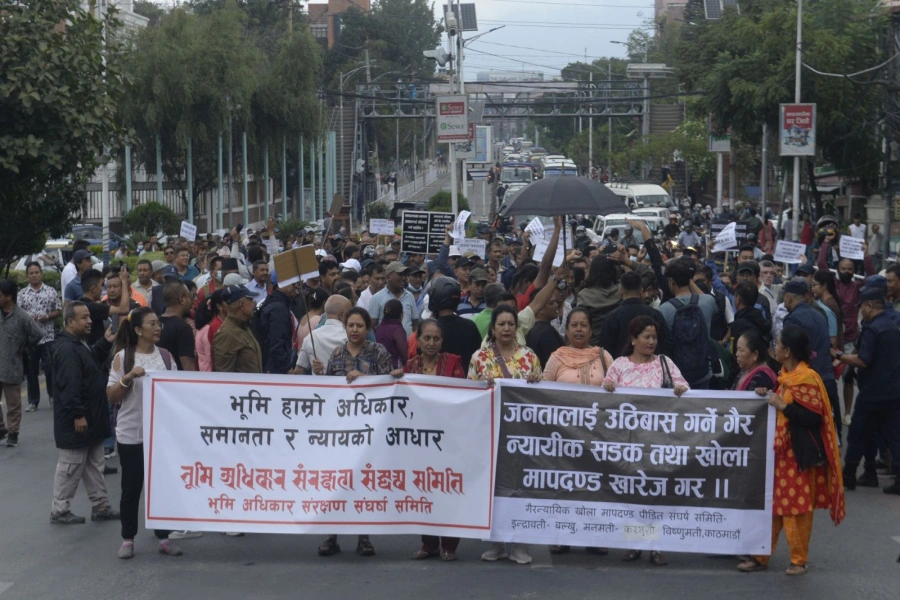SYANGJA, Jan 18: Asmita Budha is 16-months-old. Riverbank has been her home since she opened her eyes to earth. She is kept in the sandy corner of her parent’s small hut that hardly blocks wind or sun. During the day, she is taken out of the hut and is kept directly under the sun while her parents work nearby. They collect stones and sand from dawn to dusk. The little girl, who is oblivious to the rest of the world create no problem whatsoever except when she is hungry. “This riverbank is home to all of us,” says Niru, the mother.
Along with the baby, Niru, her husband Dilip and her mother-in-law have been living here and struggling with extreme poverty since last one year. The family from Dhorpatan Municipality-3, states that they work through day and night to meet their ends meet. But when they need medical care, the family finds itself in trouble. There is no health center nearby. Neither can they afford a day off from their work. “If we go to health posts that are far away from here, we are not able to work. If we don’t work, we are not paid,” she said.
Niru lamented that she did not take leave even during her nursing days. Her daughter was sick initially and Niru herself was very weak too. “But still I had to work on the riverbank, collect stones and grind them,” she said.
Locals protest against riverbank setback ruling

Their small hut is surrounded by dunes of pebbles and sands. There is hardly any space inside the hut for cooking and all their utensils are scattered outside it. She has an oven made of stone and has dried leaves nearby along with pickle bottles. “I have to work both at home and there. It is not easy,” she reported.
She says that she does not feel good about keeping the small girl in open sun whole day but says that she has to as no one remains near the hut to look after her. Even the girl’s old grandmother remains busy collecting sand and stones. “Even when all the three of us work hard, it is hard to make our ends meet,” Niru lamented.
Kamala and Farke Ghartimagar, another couple living in the area doing the same business, also share the same story. They live in similar hut and have a 15-month-old child with them. “If we stay in our village, we won’t get even jobs like this. So, we have to come and live on the riverbank in a hut,” Kamala said. “It is still okay for both of us, but we feel sad when we realize that the baby has been suffering from it,” she added.
Along with these two families, there are few other families, who have taken refuge on the riverbank to earn their livelihood. Though these families do earn to make their daily ends meet, they complain that they don’t earn enough to make savings.
“Whatever we earn through the day is spend on buying food and daily needs. Everything is costly and it is impossible any money for the future,” noted Farke.
Scattered plastic huts on the riverbank of Aadhikhola speak volumes about the inhabitants’ lives and sufferings. “Here a family can earn around Rs 8,000 in a month. Vendors come and take away the sand and stone collected by us right from here,” Farke informed. “Back in village we neither have sufficient land to do farming, nor do we get any labor works to earn,” he added.






































